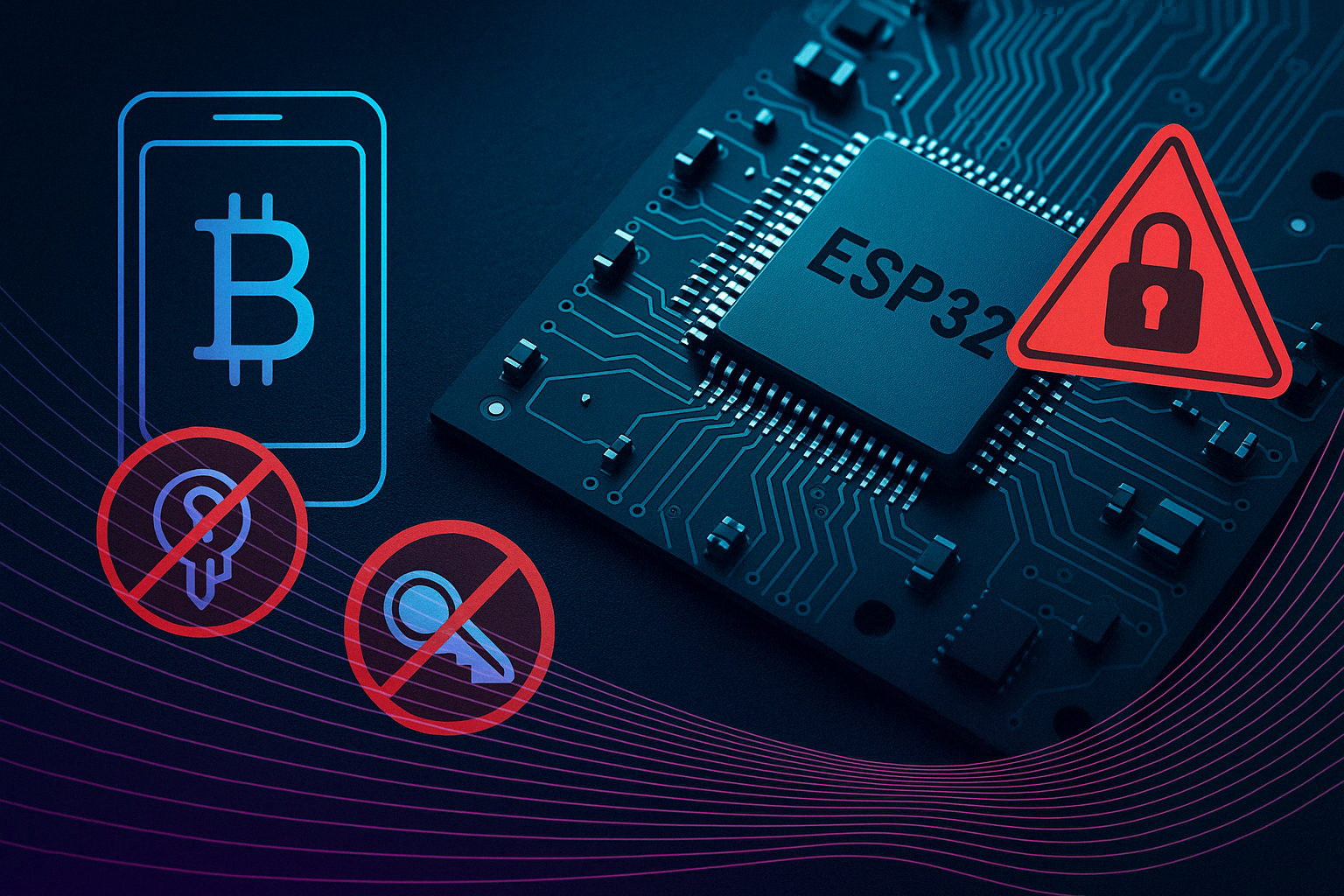What Happened?
Security researchers have uncovered a severe vulnerability (CVE‑2025‑27840) in the Chinese‑made ESP32 microcontroller, a low‑cost chip embedded in billions of Internet‑of‑Things (IoT) gadgets and several well‑known hardware crypto wallets. The flaw lets attackers silently forge cryptographic signatures and siphon off private keys, effectively hijacking a user’s funds without triggering any visible alarms.
Why the ESP32 Matters in Crypto
Many wallet makers pick the ESP32 because it’s cheap, power‑efficient, and packed with Wi‑Fi and Bluetooth radios. Unfortunately, Crypto Deep Tech’s analysis revealed that the chip’s pseudo‑random‑number generator is weak, making generated keys dangerously predictable. Worse, the firmware fails to reject invalid private keys (≤ 0), enabling attackers to pass in malicious values and sign transactions they don’t own.
Proof‑of‑Concept: 10 BTC Gone in Seconds
In a lab demonstration, researchers exploited these weaknesses to pull the private key from a wallet holding 10 BTC—worth well over $800,000—without alerting the device’s owner. They also showed how the ESP32’s wireless radios can be abused to spoof MAC addresses, inject rogue code, and exfiltrate secrets over the air. Wallets such as Blockstream Jade are listed among the highest‑risk devices, though any product that offloads key management to an ESP32 faces similar exposure.
Electrum‑Based Wallets Face an Extra Trap
A particularly ugly attack targets the electrum_sig_hash function used by many Electrum‑derived wallets. Because the ESP32 allows message prefixing before the typical double‑SHA256 hash, an attacker can craft non‑standard messages that still validate under ECDSA rules, effectively forging signatures that look legitimate on‑chain.
Ripple Effects Beyond Bitcoin
ESP32 chips aren’t just inside wallets—they power smart lightbulbs, routers, industrial sensors, and home‑automation hubs. Researchers warn that state‑sponsored hackers could exploit the same cryptographic lapse to move laterally across critical networks or stage supply‑chain attacks. “This is not just about Bitcoin; it’s about the security of the internet‑connected world,” the report states.
Ongoing Concerns with Other Wallet Lines
The discovery adds to a growing list of hardware vulnerabilities. In March, Ledger’s Donjon team published a security audit showing that Trezor’s new Safe 3 and Safe 5 models, despite improved secure elements, remain susceptible to supply‑chain manipulation because key operations still run on a general‑purpose microcontroller. citeturn1view0
A Pattern of Hardware Weaknesses
The ESP32 flaw follows 2024’s side‑channel bug in Apple’s M‑series chips—deemed “unpatchable” by academics—and an April 2025 lawsuit alleging that the Phantom browser wallet left Solana private keys in plaintext memory. Taken together, these findings highlight how even industry leaders struggle to secure keys once hardware or firmware layers are compromised. citeturn1view0
Mitigation Steps for Users and Manufacturers
- Check your device’s BOM: If your hardware wallet or IoT product lists an ESP32, look for official firmware patches or manufacturer recalls.
- Use wallets with dedicated secure elements: Chips designed for cryptographic isolation (EAL6+ or higher) sharply reduce exposure.
- Verify supply‑chain integrity: Buy directly from vendors, inspect tamper‑evident seals, and reset devices to factory firmware before use.
- Stay updated: Follow security advisories from wallet makers and independent researchers; many are releasing detection scripts and mitigation guides.
The Bottom Line
The ESP32 vulnerability is a stark reminder that low‑cost silicon can carry hidden costs when private keys are involved. Until wallet manufacturers replace or harden these chips, users must weigh convenience against the possibility of undetectable key theft. In crypto, as in all cybersecurity, the chain is only as strong as its weakest link—and right now, that link may be a tiny microcontroller tucked inside millions of devices.










